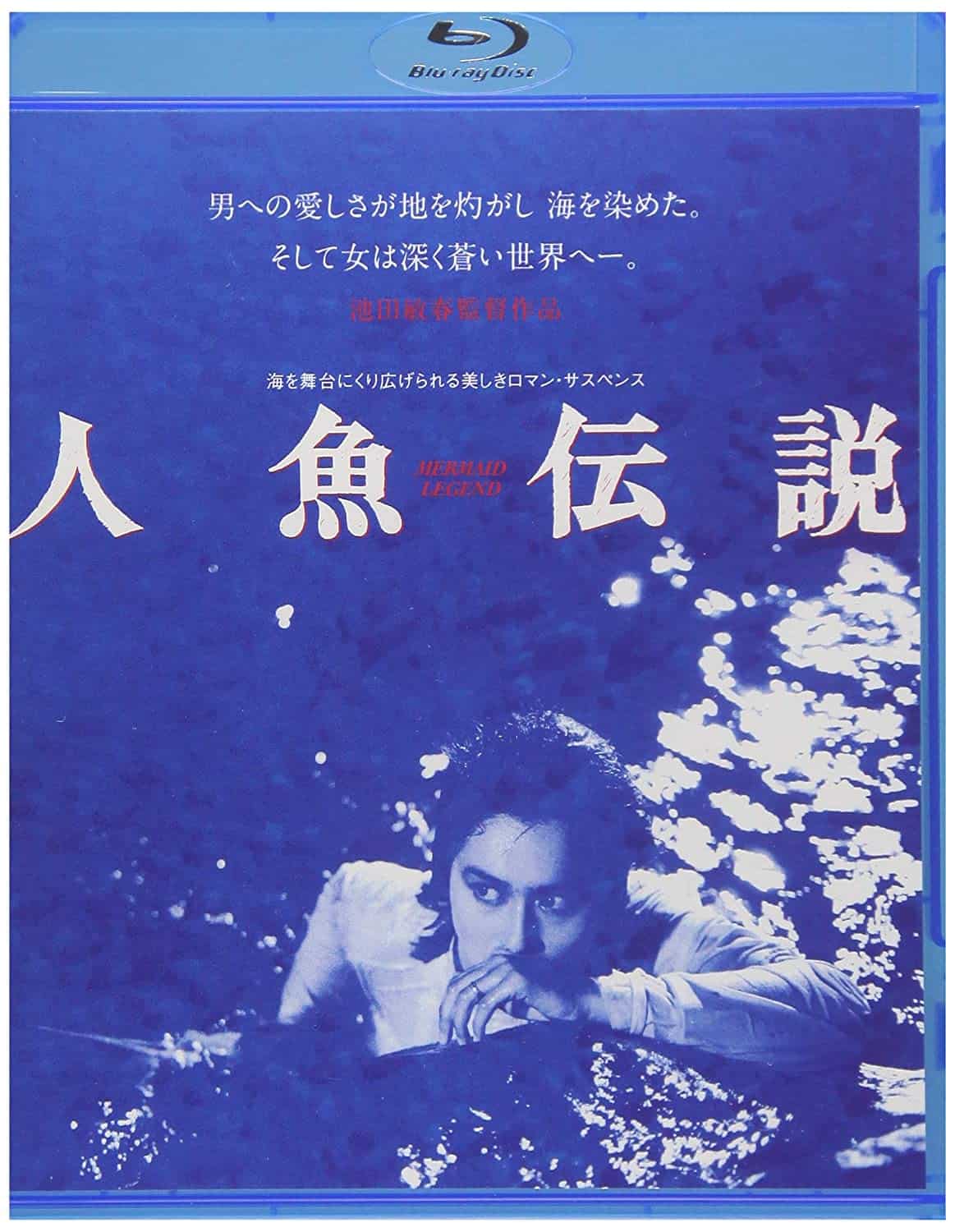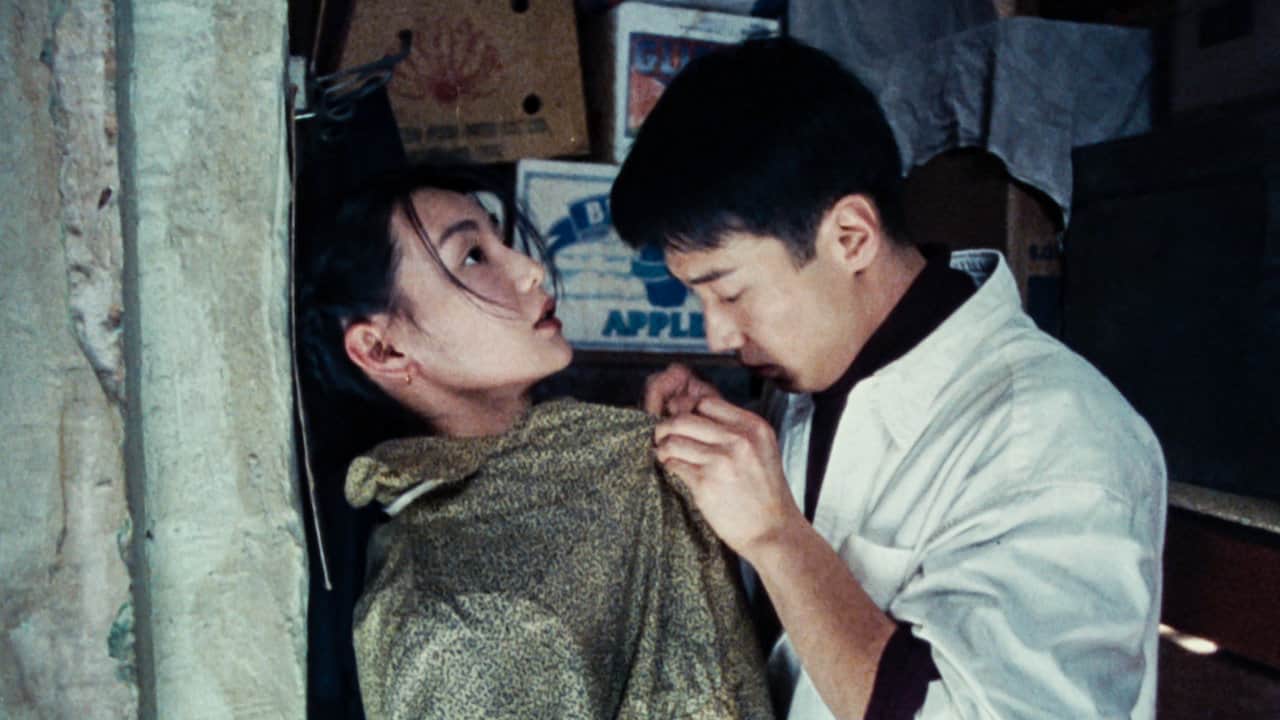Based on an adult-oriented manga by “Angel Guts” creator Takashi Ishii, “Mermaid Legend” was Toshiharu Ikeda's first film after leaving Nikkatsu, and was produced by the Director's Company and distributed by ATG. The movie won three awards in Yokohama Film Festival, for director, Actress and Cinematography, and despite its exploitation premises, also channels the intense anti-nuclear sentiment of the decade.
Buy This Title
on YesAsia
Keisuke, a frequently drunken fisherman who opposes the construction of a nuclear plant in the seaside village he lives with his young wife, is murdered by a group of thugs who are the puppets of the corrupt contractor who is tasked with securing the location for the construction. His wife, Migiwa, actually witnesses the whole thing as it happens while she was diving, a common profession for women of the area who fished that way, barely escaping the murderers herself. When she tries to inform the police, she is actually accused of being the murderer, and eventually has to escape with the help of Shohei, her husband's best friend who seems to be fond of her, but is also the son of the aforementioned contractor. After spending some time hiding and grieving, Migiwa decides to exact revenge, and a killing spree begins.
Toshiharu Ikeda directs a film that begins as a social drama regarding life in seaside villages, with his presentation lingering somewhere between the realistic and the idyllic, with a number of scenes of the sea and the beach being particularly artful. The murder signifies a change of pace and style, but the exploitation aspect of the movie only comes after an extensive part of contemplation and sorrow for the widow, which justifies, though, her later actions. After this part, and through a rather lengthy and steamy sex scene, “Mermaid Legend” shows its true colors, which are essentially bathed in the red of blood. The second sex scene, although equally sensual and exploitative, ends up in a blood bath, as Migiwa's realization of what exactly is happening with the people around her brings genuine mania into her, with the yakuza having sex just moments before becoming her first victim. Some calm moments do exist after this moment, but the movie follows an intense exploitation path in essence, which finds its apogee in the rather long, rather bloody massacre that takes place just before the ending.
The sex and violence scenes are also where Yonezo Maeda's cinematography and the overall editing find their apogee, with the framing of the act, and the way blood sputters all over the place being truly majestic to watch, in a style that is bound to have influenced filmmakers like Sion Sono and Tetsuya Mariko, with the latter's “Destruction Babies” sharing many similarities with the way Migiwa proceeds on exacting violence. The pace on the other hand, and the way moments of calmness are followed by explosions of violence reminds intently of “Hana-bi”, in another of the movie's great traits. Lastly, that the movie shines both as a whole and as an amassing of impressive individual scenes becomes evident from the number of sequences that stand out, which also include the initial murder, the scruff with the policeman and the aftermath of the massacre.
Also of note is the way Ikeda connects Migiwa's actions with the title, with the fact that she always seems to find solace in the water, even from death, deeming her a “mermaid” herself. Furthermore, the anti-nuclear sentiments of the people whose areas were destroyed in order for the plants to be built also permeates the narrative, with the introductory one, the massacre in the end, and presentation of the nuclear mongers as truly despicable people highlighting this aspect in the best fashion.
Mari Shirato as Migiwa gives an astonishing performance, presenting a transformation that is truly remarkable to watch, in a rather difficult part that has her naked and painted in blood a number of times, not to mention sorrowful and vulnerable as much as vengeful and unstoppable depending on the occasion.
“Mermaid Legend” is an excellent film that has stood the test of time, a production that is equally cult, artful, and contextually rich, a true masterpiece of the extreme.

















